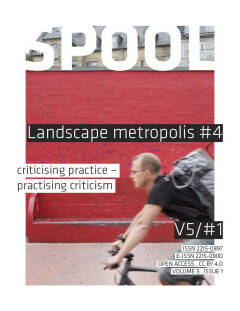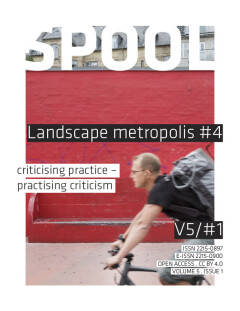
- Afhalen na 1 uur in een winkel met voorraad
- Gratis thuislevering in België vanaf € 30
- Ruim aanbod met 7 miljoen producten
- Afhalen na 1 uur in een winkel met voorraad
- Gratis thuislevering in België vanaf € 30
- Ruim aanbod met 7 miljoen producten
Zoeken
€ 19,95
+ 39 punten
Omschrijving
The editors of this themed issue of SPOOL place the discussion on the possibilities and impossibilities of criticism within the field of the design disciplines at centre stage. We are especially interested in how criticism can make an active contribution to taking a position vis-à-vis what we have called, in earlier issues of SPOOL, the contemporary condition of 'the landscape metropolis'. Criticism is an important means of reflection on the creative processes and interventions that are part and parcel of this landscape metropolis. It throws light on particular projects by describing and explaining them, but also by evaluating and generalising these reflections in relation to an entire discipline, be it landscape architecture, architecture, or urban design. As Miriam Gusevitch sharply notices: "Criticism is riskier than commentary. It is willing to judge and to condemn, to stake out and substantiate a particular position. Serious criticism is the careful and thoughtful disclosure of dimensions that might otherwise elude us..."
Specificaties
Betrokkenen
- Uitgeverij:
Inhoud
- Aantal bladzijden:
- 120
- Taal:
- Engels
- Reeks:
Eigenschappen
- Productcode (EAN):
- 9789463660112
- Verschijningsdatum:
- 19/01/2018
- Uitvoering:
- Paperback
- Afmetingen:
- 210 mm x 279 mm
- Gewicht:
- 383 g

Alleen bij Standaard Boekhandel
+ 39 punten op je klantenkaart van Standaard Boekhandel
Beoordelingen
We publiceren alleen reviews die voldoen aan de voorwaarden voor reviews. Bekijk onze voorwaarden voor reviews.






